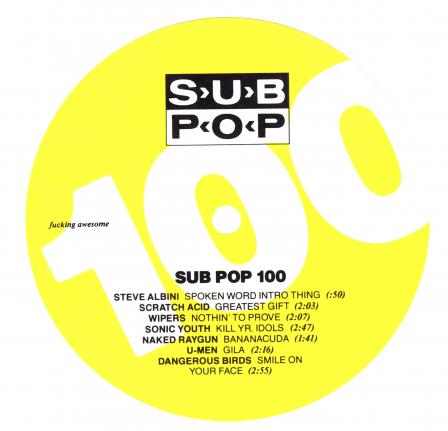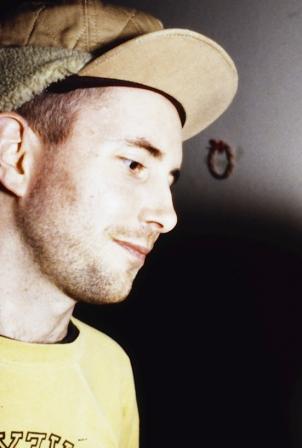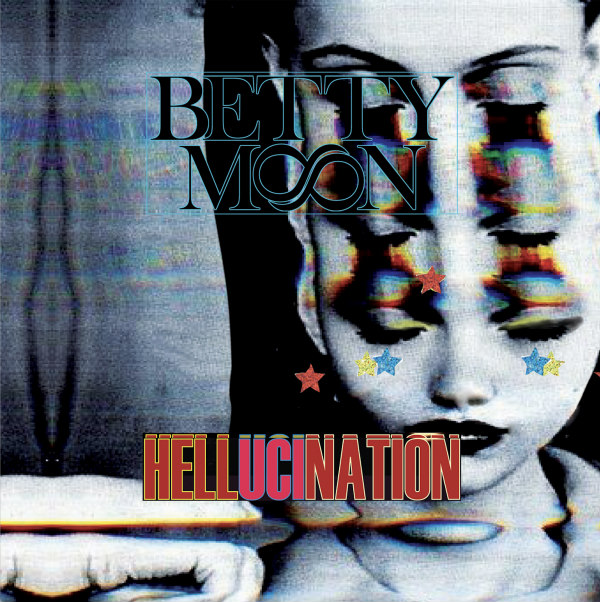Recently, Dan Volohov got the chance to speak with Bruce Pavitt – founder of Sub Pop Records. In the exclusive interview for Punk Globe magazine, Bruce spoke about tape recordings and Nirvana, underground music, the Seattle scene, Sub Pop records and 8Stream software.
Hope you’ll enjoy!
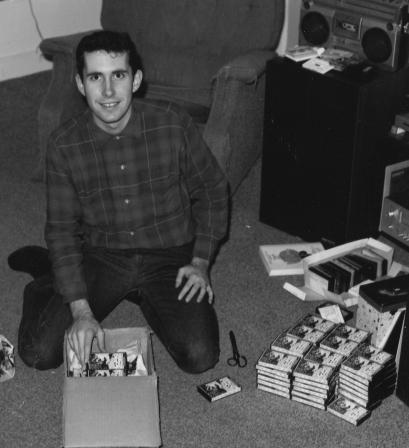
Punk Globe: Following in your own words you started your career in the world of fanzines and tape recordings. Tell us about that ?
Bruce: I was inspired by the DIY movement of the late 70’s. I started buying indie records at Wax Trax! in Chicago in ’78, I then went west to study at Evergreen in Olympia, WA in 1979 where I started my Subterranean Pop radio show. KAOS had an extensive collection of recordings from indie labels. I was further inspired by OP magazine, which came out of KAOS, and only reviewed indie releases. From Olympia, I started to review hard to find US indie records, and shared addresses so the fans could locate the tracks. The zine then started to put out cassette mixtapes featuring some of the bands I was writing about.
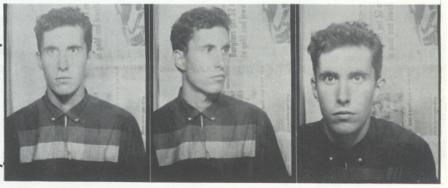
Punk Globe: I’d like to ask you about that compilations you released by yourself ( firstly ) and then as founder of Sub Pop. The first release of the label – “Sub Pop 100” compilation majorly set the boundaries for “underground music” of that era. Starting from Steve Albini’s spoken-word into. And finishing with Scratch Acid and Naked Raygun. Why you’d chose these artists ? And what did you find in their music ? What attracted you ?
Bruce: In 1986, I released the first vinyl Sub Pop release. It was similar to the tapes, in that artists from different regions were represented, including the Pacific Northwest, where I was based. I was a huge fan of some of the noisier artists of the mid 80’s, like Big Black (Albini) and Sonic Youth…so the compilation veers in that direction. However, there are a variety of sounds represented as I enjoy all types of music.
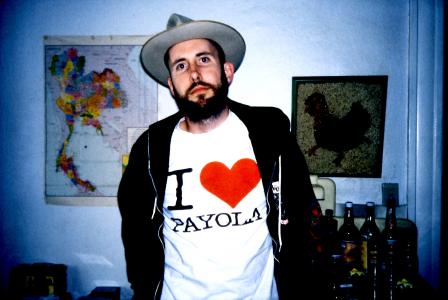
Punk Globe: During the period of your active work you got the chance to see the formation of Seattle scene. And the coming of all these bands. What was the most important factor for you in choosing artists for further work ? Because, it’s not only territorial factor. Also a certain esthetics you established with the label.
Bruce: Many of the bands emerging from Seattle in the mid 80’s valued intense live shows. The bands, like Green River and Soundgarden and Malfunkshun, Melvins, Nirvana, typically were influenced by SST bands like Black Flag, as well as classic hard rock like Black Sabbath. In short, the bands rocked, everyone had fun, and I was inspired to share the music through the label.
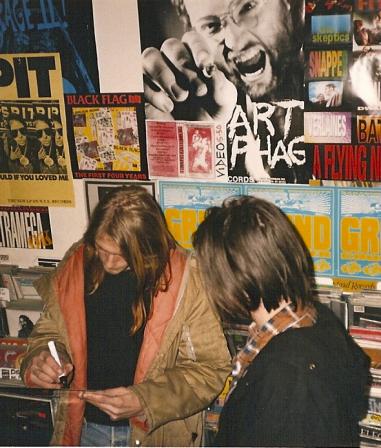
Punk Globe: Were there any principles you followed ?
Bruce: It’s challenging to have “principles” when you’re running a business; however, I would say we valued community, independence, humor, and creativity.
Punk Globe: Despite the different personalities and different sounds that their music had – all these bands that you worked with became known as “grunge”. But it was later, when all of them with your help established themselves. How do you think, was the breaking point of the term grunge
Bruce: Hmmm. Well, there was a scene, it was authentic, it was sincerely documented, and a lot of folks resonated with the energy of the scene. Smells Like Teen Spirit broke the scene into the mainstream. Things got commercial..but it can also be said that millions of people were deeply moved by the Seattle music that was coming into the mainstream. I felt it was soulful and energizing.
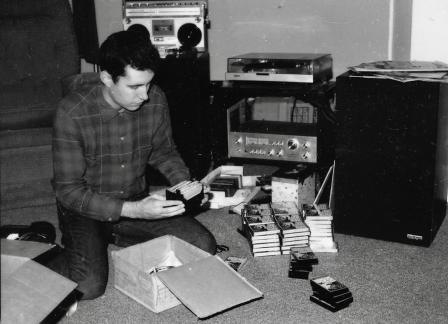
Punk Globe: In one of your interviews you spoke about the division of the music on pre-Nevermind period and post-Nevermind. So is it about commercialization of music or you spoke about cultural importance of Nirvana as they sort of united elements of many styles and musical directions into one form ?
Bruce: Nevermind really did bring together elements of punk, pop and hard rock. “Teen Spirit” was also played in dance clubs. So yes, Nirvana in particular had an amazing ability to bring many different people and scenes together.
Punk Globe: You signed the contract with Nirvana for three albums. Could you please tell me, what thoughts you had while listening to the first recordings Jack Endino did for Nirvana ?
Bruce: My business partner Jon Poneman was very excited about the demo, thankfully. I was less impressed and thought there songwriting needed work. I’m glad we decided to work with them. They just kept getting better.
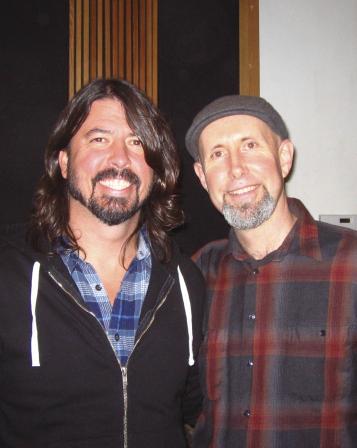
Punk Globe: While listening to all the demos, watching all these shows, what helped you to realize that this is a band I’d like to sign ?
Bruce: In the early days, we signed bands that had a great live show (L7 is a good example). We also liked to sign bands that other bands on the label liked.
Punk Globe: Now you’re working actively on program 8Stream. The whole concept of it is connected with the ability of listeners to determine what they want to listen. How you started doing this and don’t you think that it can be regarded as a sort of DIY in digital epoch ?
Bruce: Thanks for asking. My good friend Adam Farish invented this software (8Stem) that allows music fans to remix music on their phones. I believe it is an interesting creative tool, and allows for fans to have a creative dialogue with artist that they appreciate. It helps to bring down the barrier between fan and artist…allowing the fan to become part of the creative process. It is a way to help bring the DIY spirit into the digital age, yes.
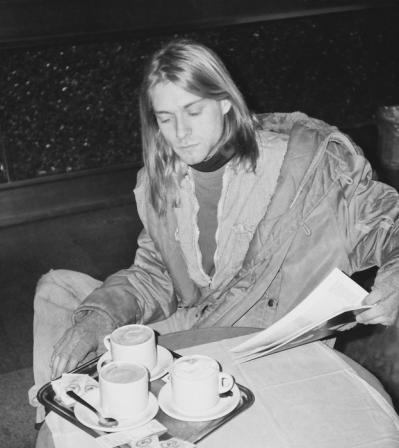
Punk Globe: Last year K-Records released the album – “City Of Seige: Olympia” by Tiny Holes where you played. Could you please tell me about that period of your life ?
Bruce: In 1981, I was briefly in a band in Olympia, Tiny Holes. We were influenced by art/punk bands like Pere Ubu and The Pop Group. It was a fun way to kill time as a young creative person.
Punk Globe: Speaking about underground music…Of course alot has changed since 80’s. And transformed as well. But I’d like to ask you – about your thoughts with the current “underground music” nowadays ?
Bruce: Yes, there will always be creative people working on the margins, and sometimes, they become popular. In the age of the internet, it’s easier to access most art/music as it’s usually just a click away…so it could be argued there is no more underground. However, cool stuff that is ahead of it’s time is usually ignored for awhile, until the time is right. Hence, there will always be visionaries, and sometimes they struck a chord with the masses, and come out of the shadows. Like Nirvana.
